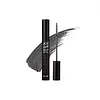What's inside
What's inside
 Key Ingredients
Key Ingredients

 Benefits
Benefits

 Concerns
Concerns

 Ingredients Side-by-side
Ingredients Side-by-side

Isododecane
EmollientCera Alba
EmollientCopernicia Cerifera Cera
EmollientDisteardimonium Hectorite
StabilisingDilinoleic Acid/Butanediol Copolymer
Water
Skin ConditioningAllyl Stearate/Va Copolymer
Oryza Sativa Cera
Skin ConditioningParaffin
PerfumingAlcohol Denat.
AntimicrobialPolyvinyl Laurate
Propylene Carbonate
SolventVp/Eicosene Copolymer
Synthetic Beeswax
Emulsion StabilisingEthylenediamine/Stearyl Dimer Dilinoleate Copolymer
Skin ConditioningPEG-30 Glyceryl Stearate
EmulsifyingPanthenol
Skin ConditioningSilica
AbrasiveKaolin
AbrasivePentaerythrityl Tetra-Di-T-Butyl Hydroxyhydrocinnamate
AntioxidantCI 77491
Cosmetic ColorantCI 77492
Cosmetic ColorantCI 77499
Cosmetic ColorantCI 77007
Cosmetic ColorantCI 77891
Cosmetic ColorantCI 77742
Cosmetic ColorantMica
Cosmetic ColorantIsododecane, Cera Alba, Copernicia Cerifera Cera, Disteardimonium Hectorite, Dilinoleic Acid/Butanediol Copolymer, Water, Allyl Stearate/Va Copolymer, Oryza Sativa Cera, Paraffin, Alcohol Denat., Polyvinyl Laurate, Propylene Carbonate, Vp/Eicosene Copolymer, Synthetic Beeswax, Ethylenediamine/Stearyl Dimer Dilinoleate Copolymer, PEG-30 Glyceryl Stearate, Panthenol, Silica, Kaolin, Pentaerythrityl Tetra-Di-T-Butyl Hydroxyhydrocinnamate, CI 77491, CI 77492, CI 77499, CI 77007, CI 77891, CI 77742, Mica
Isododecane
EmollientTrimethylsiloxysilicate
EmollientTalc
AbrasiveCeresin
Emulsion StabilisingDextrin Palmitate
EmulsifyingMicrocrystalline Wax
Emulsion StabilisingDisteardimonium Hectorite
StabilisingCI 77499
Cosmetic ColorantPolypropylsilsesquioxane
Propylene Carbonate
SolventSilica
AbrasiveDextrin Palmitate/Ethylhexanoate
EmulsifyingHydrogenated Polyisobutene
EmollientNylon-66
Triethoxycaprylylsilane
Glyceryl Caprylate
EmollientCI 77891
Cosmetic ColorantCandida Bombicola/Glucose/Methyl Rapeseedate Ferment
AntimicrobialWater
Skin ConditioningArgania Spinosa Kernel Oil
EmollientCamellia Sinensis Seed Oil
HumectantOlea Europaea Fruit Oil
MaskingDipropylene Glycol
Humectant1,2-Hexanediol
Skin ConditioningHydrolyzed Collagen
EmollientLactobacillus/Soybean Extract Ferment Filtrate
Skin ConditioningIsododecane, Trimethylsiloxysilicate, Talc, Ceresin, Dextrin Palmitate, Microcrystalline Wax, Disteardimonium Hectorite, CI 77499, Polypropylsilsesquioxane, Propylene Carbonate, Silica, Dextrin Palmitate/Ethylhexanoate, Hydrogenated Polyisobutene, Nylon-66, Triethoxycaprylylsilane, Glyceryl Caprylate, CI 77891, Candida Bombicola/Glucose/Methyl Rapeseedate Ferment, Water, Argania Spinosa Kernel Oil, Camellia Sinensis Seed Oil, Olea Europaea Fruit Oil, Dipropylene Glycol, 1,2-Hexanediol, Hydrolyzed Collagen, Lactobacillus/Soybean Extract Ferment Filtrate
 Reviews
Reviews

Ingredients Explained
These ingredients are found in both products.
Ingredients higher up in an ingredient list are typically present in a larger amount.
Ci 77499 is also hydrated iron III oxide. It is created from mixing red and black iron oxides. This helps give shades of darkness to a product.
Iron III oxides are classified as inorganic chemicals for coloring.
Ci 77891 is a white pigment from Titanium dioxide. It is naturally found in minerals such as rutile and ilmenite.
It's main function is to add a white color to cosmetics. It can also be mixed with other colors to create different shades.
Ci 77891 is commonly found in sunscreens due to its ability to block UV rays.
Learn more about CI 77891Disteardimonium Hectorite comes from the clay mineral named hectorite. It is used to add thickness to a product.
It can also help stabilize a product by helping to disperse other ingredients.
Hectorite is a rare, white clay mineral.
Learn more about Disteardimonium HectoriteIsododecane is a fragrance, emollient, and solvent.
As an emollient, it helps your skin stay soft and hydrated. Emollients help trap moisture into your skin.
Isododecane's role as a solvent makes it a great texture enhancer. It spreads smoothly on skin and does not leave a sticky feeling behind. Isododecane also helps prevent color transfer in makeup products.
Isododecane is not absorbed into skin.
Learn more about IsododecaneThis ingredient is a solvent. It helps dissolve active ingredients and alter the texture of products.
Propylene Carbonate is commonly used in makeup and with clay, such as montmorillonite or bentonite.
Studies show this ingredient to be safe for cosmetics. When it is undiluted, it can cause skin irritation. (It is always diluted in skincare and makeup). This ingredient is water-soluble.
Propylene Carbonate is created from propylene glycol and carbonic acid.
Learn more about Propylene CarbonateSilica, also known as silicon dioxide, is a naturally occurring mineral. It is used as a fine, spherical, and porous powder in cosmetics.
Though it has exfoliant properties, the function of silica varies depending on the product.
The unique structure of silica enhances the spreadability and adds smoothness, making it a great texture enhancer.
It is also used as an active carrier, emulsifier, and mattifier due to its ability to absorb excess oil.
In some products, tiny microneedles called spicules are made from silica or hydrolyzed sponge. When you rub them in, they lightly polish away dead skin layers and enhance the penetration of active ingredients.
Learn more about SilicaWater. It's the most common cosmetic ingredient of all. You'll usually see it at the top of ingredient lists, meaning that it makes up the largest part of the product.
So why is it so popular? Water most often acts as a solvent - this means that it helps dissolve other ingredients into the formulation.
You'll also recognize water as that liquid we all need to stay alive. If you see this, drink a glass of water. Stay hydrated!
Learn more about Water